In case you are beginning to take black and white photographs or are simply taking a look at it as the subsequent step in your pictures, you’ve most likely come throughout three phrases (grayscale vs black and white vs monochrome) and questioned, “What’s the distinction?”
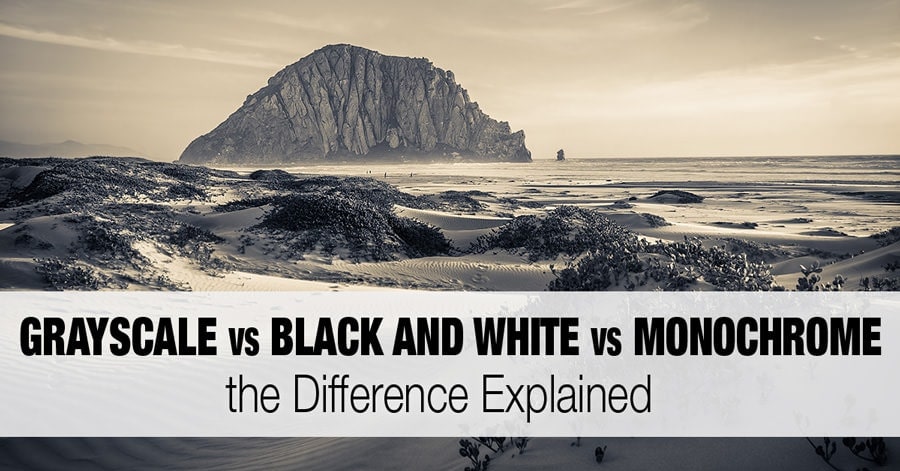

The short reply is, “Not very a lot.” Nevertheless, to actually perceive these distinctions and the way they affect your photographic journey, it’s important to take a more in-depth have a look at every time period and discover their refined divergences.
Black and White Pictures
As soon as upon a time, there was simply “movie.” It was all black and white; that was the one choice. Google “outdated movie field,” and also you’ll see it would merely say “movie” on the field with none point out of shade or black and white.
As shade pictures turned extra common, there needed to be a method to inform what sort of movie you had been shopping for. The phrase that was coined was, after all, a “Black and White” movie.
However, that is removed from being very correct.
If you concentrate on it, a real black and white picture would include solely black and white colours. However, what we name a black and white {photograph} is made from black, white, and many various shades of gray.
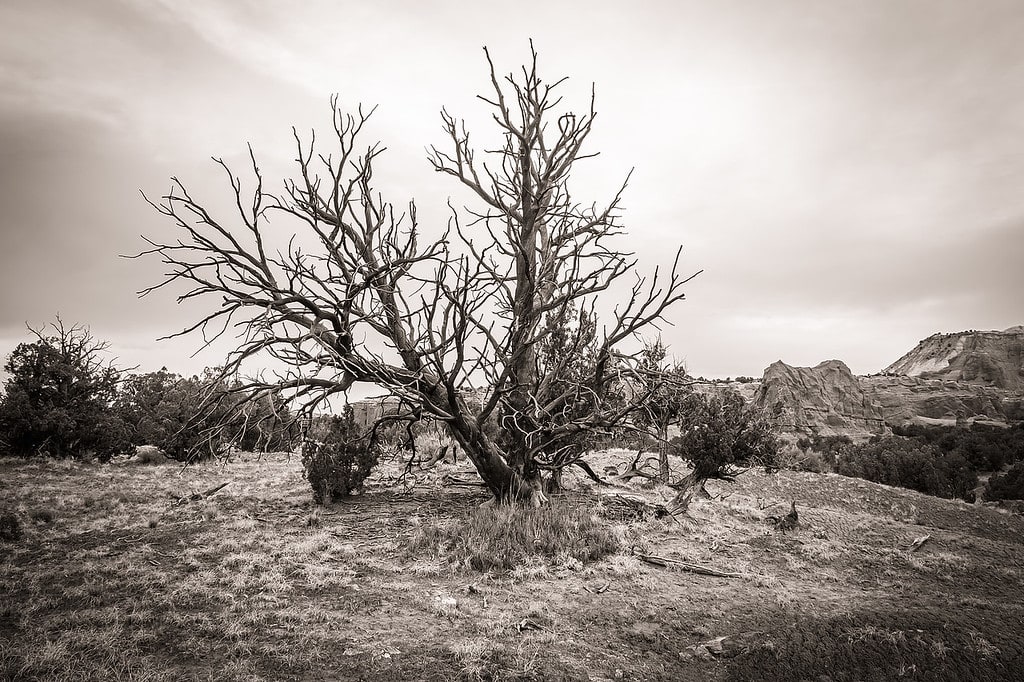

What’s Grayscale Pictures?
“Grayscale” is a extra technical and extra correct time period for the kind of pictures we name black and white. The technical definition of “grayscale” photographs that composed completely of various shades of grey, starting from pure black to pure white, with no shade data.
You’ll discover photographers use the time period “Black and White” whereas these within the design trade favor the time period “Grayscale.”
Utilization of the time period “grayscale” has elevated since the usage of digital imaging has taken over movie pictures.
What’s Monochrome Pictures?
The time period “monochrome” has its origins within the medieval Latin phrase monochrōma. It consists of two phrases: “mono” and “chrōma,” which interprets precisely as “single shade.”
Monochrome pictures could be outlined as a picture consisting solely of assorted shades inside a single shade, starting from the brightest to the darkest hues.
The most effective instance of a monochrome picture is a sepia photograph, which has its origins in movie pictures. It emphasizes the interaction of sunshine and shadow, texture, kind, and distinction whereas eliminating the complexity of a full spectrum of colours.
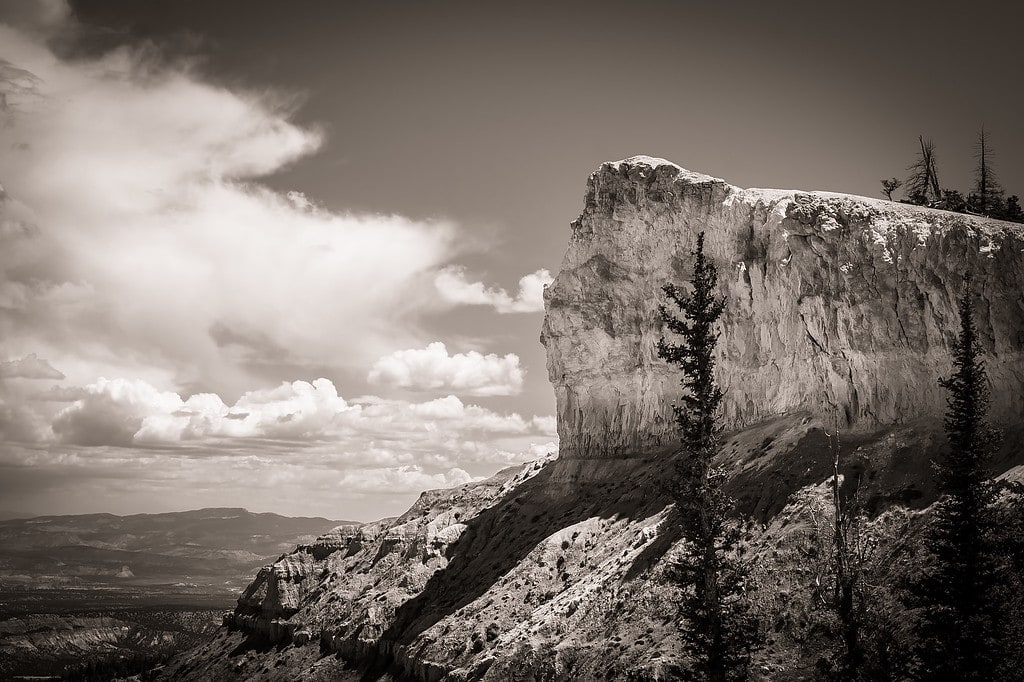

Grayscale vs Black and White
In essence, “grayscale” and “black and white” by way of pictures imply precisely the identical factor. Nevertheless, grayscale is a much more correct time period. A very black and white picture would merely include two colours—black and white. Grayscale photographs are created from black, white, and the complete scale of shades of grey.
Grayscale vs Monochrome
All grayscale or black and white photographs are monochrome as they’re made from various shades of just one shade—black. Nevertheless, not all monochrome photographs are grayscale, as monochromatic photographs could be made from any shade.
A picture made completely of shades of yellow would nonetheless be thought of a monochromatic picture.
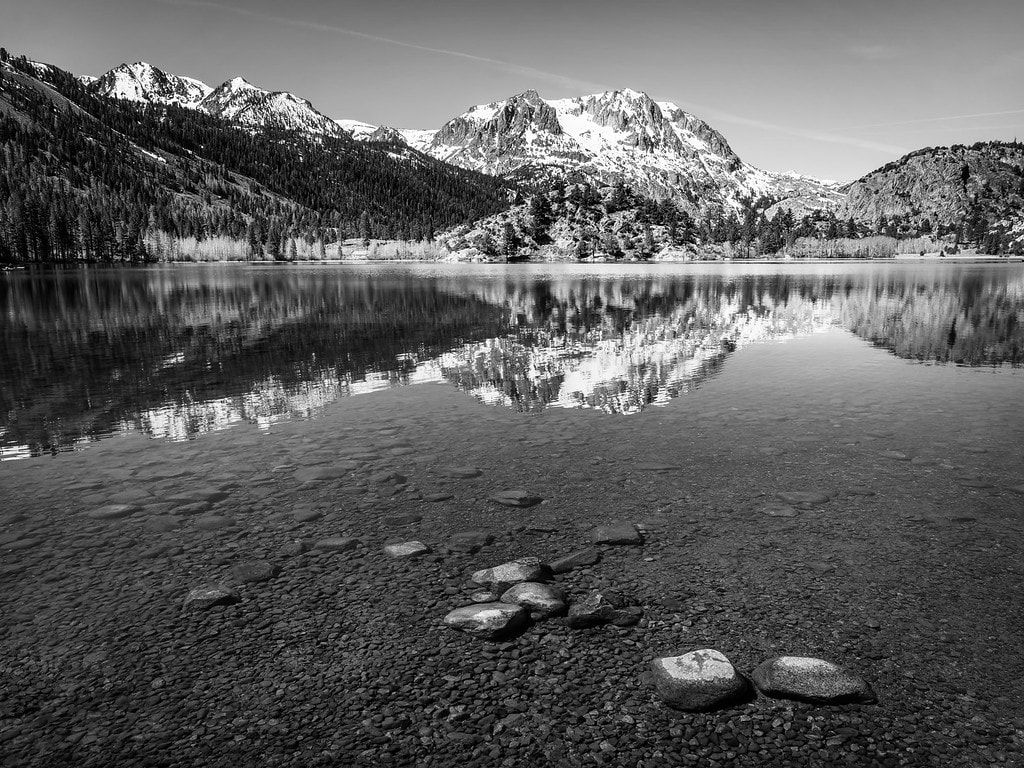

What’s the Greatest Technique to Create Grayscale, Black and White, or Monochromatic Images?
In trendy digital pictures, there are two principal methods of manufacturing grayscale or monochromatic pictures.
01. Creating Black and White Photographs In-camera
You’ve most likely spent a while taking a look at your digicam’s instruction handbook and relying on the digicam model you personal, you’ve most likely observed that it has Black and White, Monochrome, or Movie Simulation modes. By activating a kind of modes, you instruct your digicam to supply black and white or monochrome photographs on the time of the capturing.
The way in which the digicam works is first by capturing the picture in shade. Subsequent, it runs the picture by means of the digicam’s inner processor and converts them to black and white. Lastly, it saves the captured photograph as a JPEG picture.
The benefit of this black and white pictures strategy is that you just immediately have a black and white photograph, and no additional conversions are vital.
The drawback of in-camera black and white capturing is that throughout the conversion, the digicam discards all the colour data and turns the uncompressed RAW file right into a closely compressed JPEG format. In case you are sad with the ultimate photograph, you can not change it again to a shade model. Plus, the latitude at which you’ll be able to edit the JPEG photograph could be very restricted.


02. Creating Black and White Photographs in Publish-Processing
The second strategy to black and white pictures is to shoot in shade in an uncompressed RAW format and convert the colour picture to black and white in a photograph enhancing software corresponding to Lightroom or Photoshop.
The benefit of this technique is that it preserves all of the doable information that the digicam sensor collects from the scene, which supplies you extra freedom throughout the enhancing course of. You possibly can produce shade and black and white variations of the identical photograph and create a vast variety of black and white and monochrome variations.
The drawback is that it requires the additional step to create the black and white picture, and you should be taught photograph enhancing.
Associated: Pictures Abbreviations and Acronyms
Personally, I at all times shoot in shade in RAW format and later resolve what remedy I wish to apply to my pictures. I closely depend on Lightroom presets to hurry up the black and white conversion. I’ve a devoted assortment for panorama pictures and presets designed for environmental portraits.
The Hybrid Technique of Capturing for Black and White
As I discussed earlier, there are two major strategies of making black and white pictures. I typically use a mix of each approaches for the reason that advances within the digicam’s mirrorless expertise has made this hybrid strategy doable.


My predominant digicam is a mirrorless Fujifilm X-T2, and I at all times shoot in shade in RAW format. However, I’ve the choice to use black and white movie simulations to my photographs anyway. What this does is switches my EVF to monochrome mode, so I can preview the scene in black and white to higher assess the scene’s potential for black and white pictures.
See additionally: How Massive Is a 4×6 Photograph?
After I press the shutter, the digicam captures the colour RAW picture however concurrently creates a black and white preview and embeds it into the RAW file.
With this strategy, I’ve the very best of each worlds.
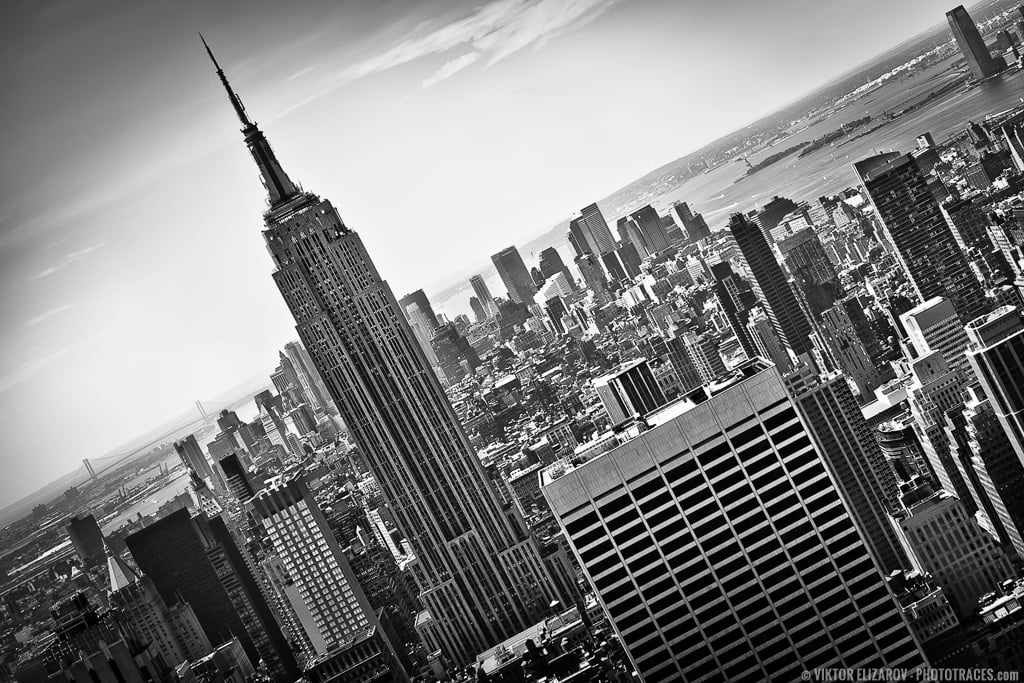

Grayscale vs Black and White vs Monochrome: FAQ
Monochrome vs. Grayscale Printing: What’s the Distinction?
Grayscale printing combines shade ink or toner with black to supply diverse grey tones, enhancing picture high quality. In distinction, monochrome printing makes use of simply black ink or toner, good for clear textual content printing.
Associated: Printing Pictures – Matte vs Shiny
The choice to go for monochrome or grayscale printing hinges in your particular printing necessities. In case your major output consists of black and white textual content, the monochrome setting or a monochrome printer is essentially the most appropriate selection. However, when working with black-and-white photographs, grayscale printing is the popular choice on account of its functionality to supply a spectrum of contrasting shades and finer particulars.
When looking for printers, keep in mind that shade printers can deal with each modes (grayscale and monochrome), however monochrome printers are restricted to monochrome mode.
Black and White vs. Grayscale Scanning: What’s the Distinction?
The principle distinction between Black and White (monochrome) and Grayscale scanning modes lies in the best way they deal with shade and the kind of content material they’re greatest fitted to.
Black and White (monochrome) scanning makes use of solely two colours – black (ink or toner) and white (no ink or toner). Printed characters seem as black on a white background, making them extremely legible. Monochrome scanning is usually sooner and makes use of much less toner or ink. It’s an environment friendly selection for paperwork primarily consisting of textual content.
Grayscale scanning captures a variety of grey shades, from black to white. It permits for the copy of extra nuanced photographs and paperwork with shade parts however it might take longer on account of its detailed strategy and the seize of a wider vary of tones.
Associated: Commonplace Print Sizes
Grayscale scanning is right for reproducing photographs or paperwork that comprise extra than simply black textual content. It gives a photographic illustration that features refined shade variations and imperfections.
Grayscale vs Black and White vs Monochrome | Conclusion
There are some photographers who ONLY create black and white photographs within the digicam and see it because the purest type of pictures. I can definitely respect this perspective.
However, if you’re at the beginning of your pictures journey and simply working by means of the assorted phrases, meanings, whys, and wherefores, my recommendation is to not panic. Exit and {photograph} as a lot and as typically as you possibly can. Later, you possibly can resolve if it must be a shade or a black and white picture.
The query is… what do you suppose? Which technique of making black and white and monochrome photographs do you favor? Do you solely use in-camera conversions or do you favor a post-processing workflow?
Tell us your ideas within the feedback under!


